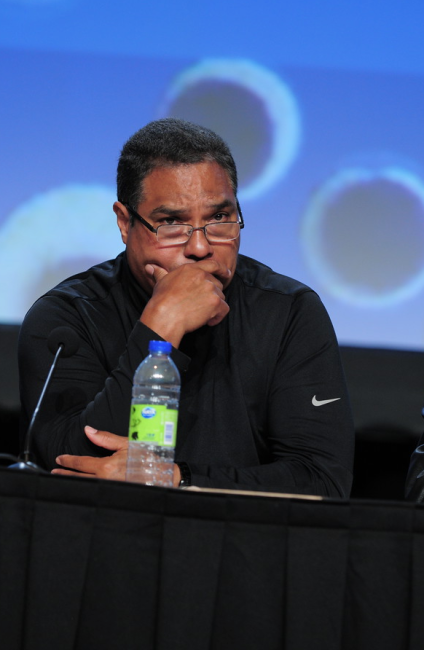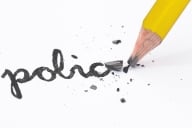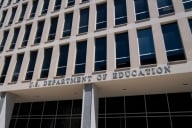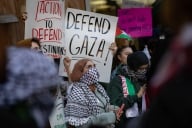You have /5 articles left.
Sign up for a free account or log in.

Eduardo Bonilla-Silva
American Sociological Association
MONTREAL -- It’s not whether to talk to students about sensitive current events like the white supremacist violence in Charlottesville, Va., but how. That was the upshot of a panel called “Teaching in Our Contemporary Moment” here Monday at the annual meeting of the American Sociological Association.
“You have to talk about those things in your class,” said Tanya Golash-Boza, a professor of sociology at the University of California, Merced, who specializes in race and immigration. “Whatever you think of sociologists, they’re more socially aware than the biologists and the computer scientists … You have to remember that sociology is a place where students come to talk about what happened yesterday, what happened last week.”
While Charlottesville was subtext for a variety of panels here, Golash-Boza said that her students in particular were rocked by a 2015 campus stabbing attack by student who was later killed by police. And because a majority of her students are Hispanic, with many from immigrant families, there are lingering concerns about President’s Trump’s rhetoric and actions on immigration.
Golash-Boza said it doesn’t make her “feel the most comfortable to manage the feelings of 50 people at once, but I can.” One strategy, she said, is to call for backup: ask experts in the subject matter, from on campus or off, to speak to students. After Trump’s election, for example, she invited a colleague who works for a political think tank to visit and answer students’ questions about what is actually possible, within the limits of the Constitution, in terms of immigration.
“It’s not my forte to try and make students feel safe -- it’s not what I do,” said Golash-Boza. “What I see as more [my] forte is to try and make them feel empowered.” Part of that, she said, is trying to include as many women, writers of color and younger critical voices on her syllabus as possible.
Melissa Brown, a Ph.D. candidate at the University of Maryland at College Park, recently co-designed and co-taught a class with her professor, Patricia Hill Collins, on black social movements. Brown said the class -- which operated off a living syllabus and encouraged students to use Twitter to discuss current events -- drew on campus activism, including Black Lives Matter. (Collins taught an earlier version of the course just after the death of Freddie Gray while he was in police custody, in nearby Baltimore. Richard Collins III, a black Bowie State University student, was murdered at the Maryland campus this year, and the suspect was a Maryland student with apparent white supremacist sympathies.)
“Maryland’s students are the most activist students I’ve ever seen,” said Brown. “And being so close to [Washington], these students are living this moment -- this stuff is being brought to their front door."
Brown said each class session on black social movements started with a 10- to 15-minute discussion of current events, during which she, Patricia Collins and other co-instructors took a backseat. Assigned student groups next led discussions about a dedicated topic, and the class concluded in group work.
Ground principles -- if not rules -- were helpful in facilitating civil discussions, Brown said. For example, students knew they were not there to debate whether or not racism exists. Golash-Boza agreed, saying that hard facts and figures were the building blocks of discussion, not subjects of debate, in her classroom.
Current Events and the Sociological Lens
Jessie Daniels, a professor of sociology at Hunter College and the Graduate Center of the City University of New York, also said that current events are valuable lenses through which to study sociological phenomena. She’s previously assessed students by asking them to pick an event and analyze it, using course materials, for example.
Daniels cautioned, however, that critical media literacy is a crucial "second curriculum" for any course that encourages students’ exploration of varied media -- so much so that she’s created a page on critical media literacy on her wiki site dedicated to teaching sociology through documentary film.
“The critical media piece is incredibly important at this moment, and becoming more important every semester,” she said, “as part of what’s happening in our current era is a manipulation of media.”
Brown agreed, saying while Twitter was useful teaching tool, it had led at least one of her students to conspiracy theory-oriented corners of the web. As he espoused such beliefs in a class discussion, however, instructors corrected him, Brown said.
Sometimes, of course, even professors don’t have all the answers. During another panel with undercurrents related to Charlottesville -- called “Trump’s Challenge to Democracy?” -- scholars struggled to answer the question. Sidney Tarrow, Maxwell M. Upson Professor Emeritus of Government at Cornell University, compared him to Italian dictator Benito Mussolini in his media savvy and "indifference" to ideology, but the overall consensus was that Trump is more of a symbolic menace to democracy than an actual one.
Eduardo Bonilla-Silva, a professor of sociology at Duke University and president-elect of the sociological association, joked that if “God supposedly created the world in six days, Trump in six months has come close to destroying it.” While he admittedly questioned his conclusions in the aftermath of Charlottesville, Bonilla-Silva said that Trump thus far has appealed more to emotion -- and racialized emotion in particular -- than taken concrete steps to dismantle democracy.
“Almost every day, we hear someone saying, ‘Can you believe what Trump did yesterday?’” Bonilla-Silva said, urging sociologists not to "normalize" the political present. “While we should join in this type of criticism -- and I confess the ‘Trumpster’ is in many ways unique -- our central focus ought to be his base policies on the class, race and gender fronts.”
On each, Bonilla-Silva continued, “this administration has not changed the fundamentals of American policy -- although on the race and gender fronts, he’s advancing morals that represent a step back.” Of race, in particular, he said, "Trumpism" has fostered a "dangerous environment that has created and green light for race crimes to flourish."









